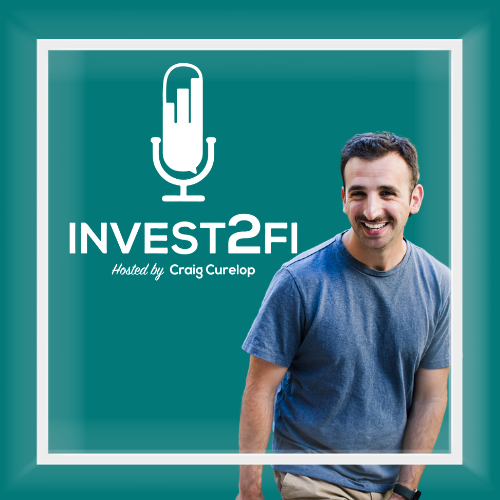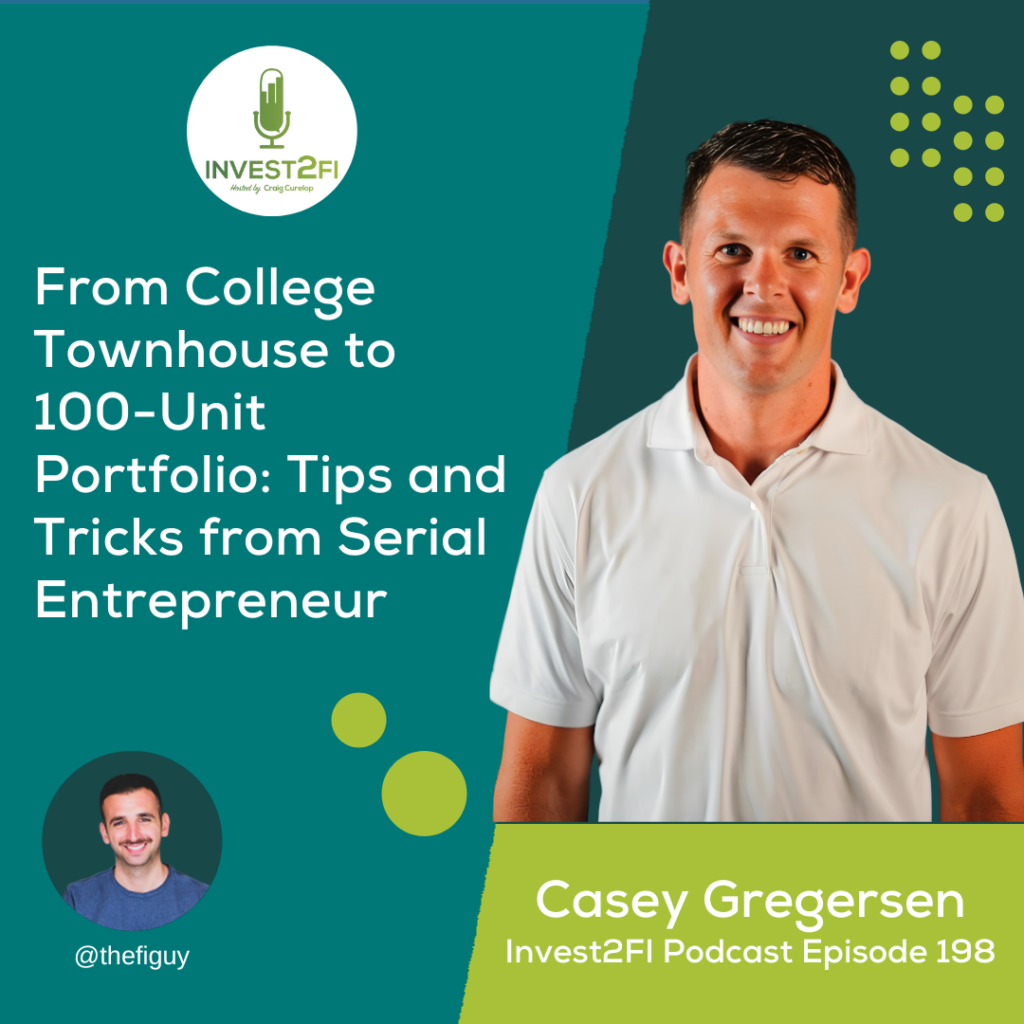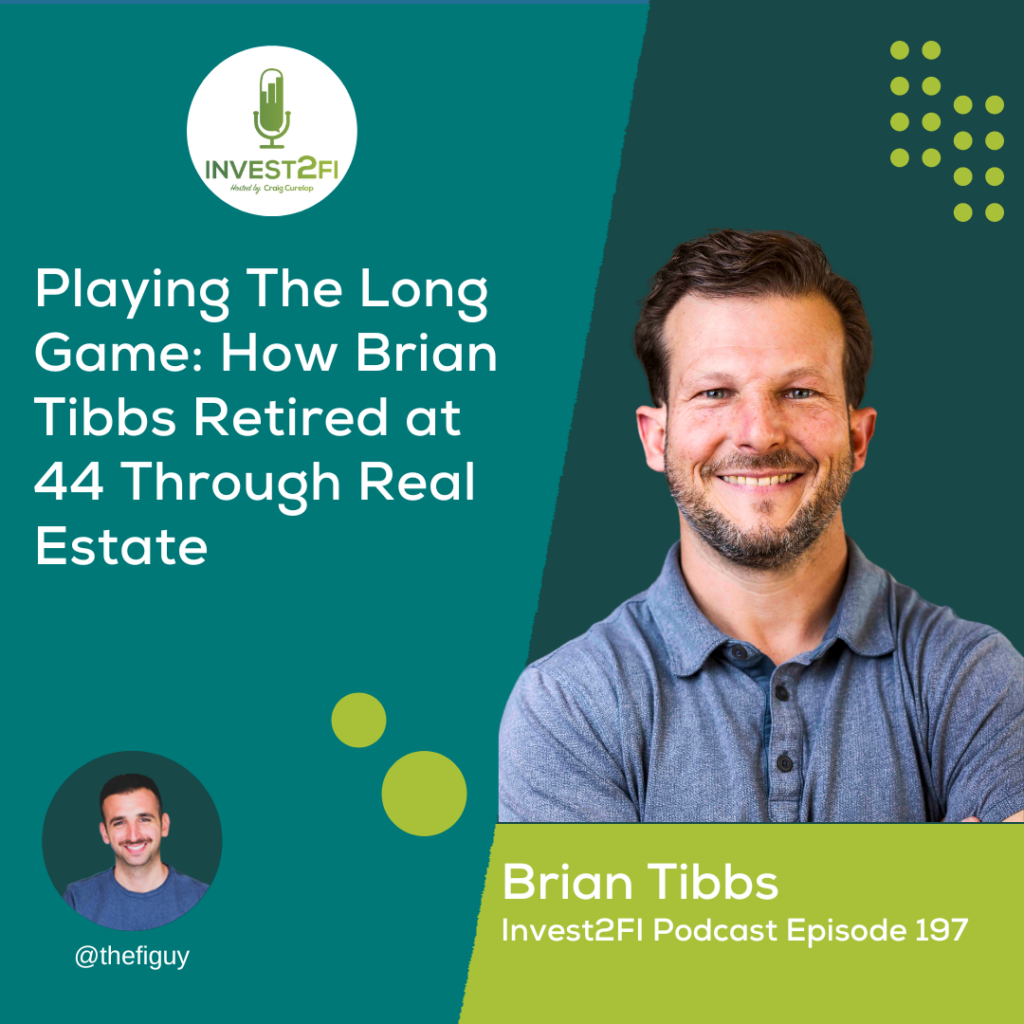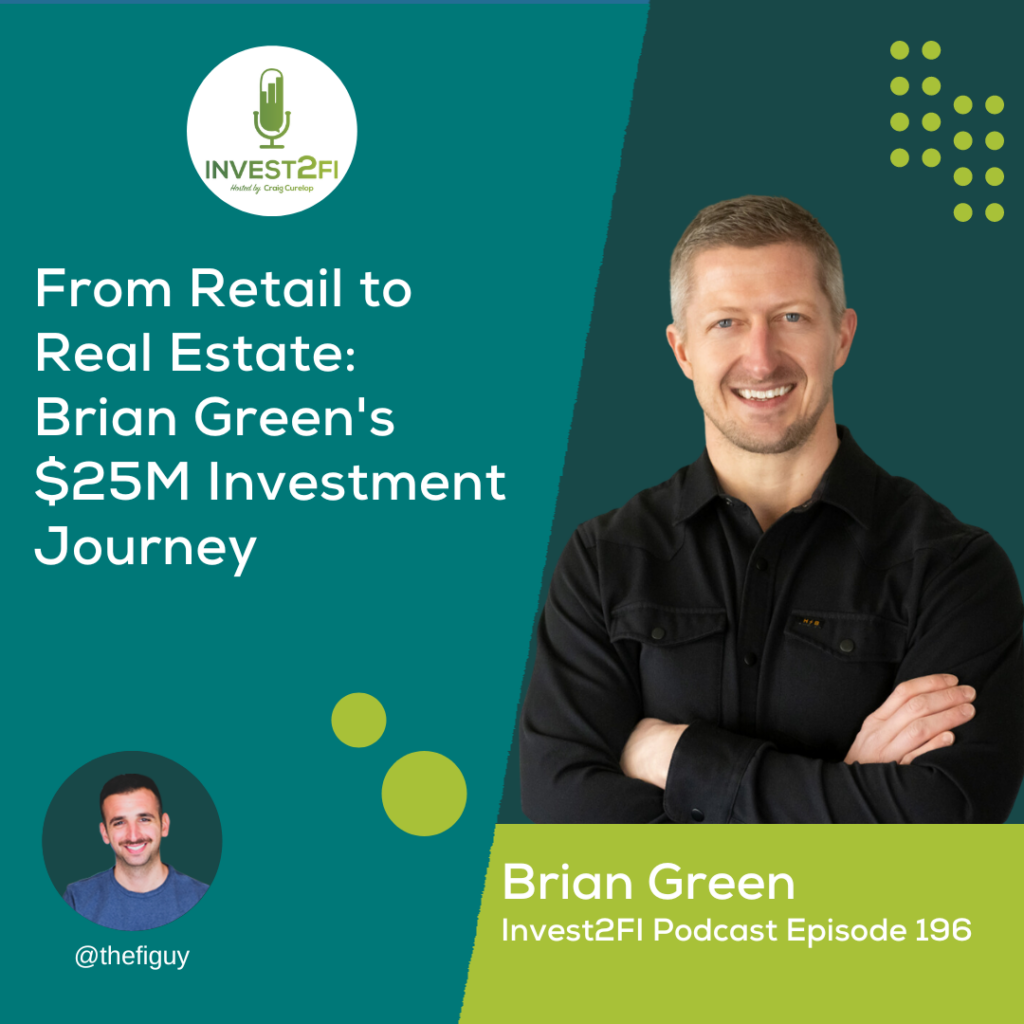Real estate is undoubtedly one of the most profitable and thriving industries out there
Especially if you are looking to achieve financial independence! It offers a wide variety of ways to invest actively and passively. If you are new to real estate investing and FI, and seek the proper guidance from experts, you are in the right place.
Welcome to Invest2FI, hosted by Craig Curelop, 7x house hacking and author of The House Hacking Strategy. In this series, we talk with real-life house hackers, real estate (and other!) investors and real people on a mission to become financially independent.

Listen HERE
Invest2FI Podcast
Episodes
Episode 198 – From College Townhouse to 100-Unit Portfolio: Tips and Tricks from Serial Entrepreneur Casey Gregersen
Episode 197 – Playing The Long Game: How Brian Tibbs Retired at 44 Through Real Estate
Episode 196 – From Retail to Real Estate: Brian Green’s $25M Investment Journey
Hosted by Craig Curelop

Craig Curelop went from a net worth of negative $30,000 to financially independent in just 2.5 years. Now, with his financial independence he has fun building a team of investor-friendly real estate agents at The FI Team, helping others achieve financial independence as he did. When he’s not slaying dragons with his newfound money mustache, he is rocking podcasts episodes, generating valuable content for FIRE learners everywhere, and living the biohacker good life in Colorado and Idaho with his wife.
From College Student to Financially Independent in 2 years with Airbnb!
TESTIMONIALS
What our Listeners say
Dan K ATX
“Two award winning hosts, rock star guests, and succinct actionable insights!
Q: When does 1+1 = 3, 4, or seemingly ∞?
A: When two award-winning rock stars co-host a discussion on achieving #FinancialFreedom!
As a #solopreneur and prior #podcast host, it was a sincere privilege for Craig Curelop & Zeona McIntyre to orchestrate a look back over my past decade as a passive investor, filled with dozens of succinct takeaways.
“
Dan Sheeks
“Great stuff!
Craig and Zeona give great advice and ask great questions of their guests. One of the best new podcasts I’ve come across in a while. Highly recommend!”
Bryan Balducki
“The FI Team podcast kills it!
If you are interested in real estate investing, house hacking, short term rentals or reaching financial independence through real estate investing, this podcast is for you! Investing in real estate doesn’t have to be scary, and this podcast breaks it down step by step with new and experienced investors, in the least intimidating way. Start with your first house and buy a property every year with ease, and let this podcast inspire and teach you along the way. Thanks guys for all the hard work you’ve put into these shows!!”




